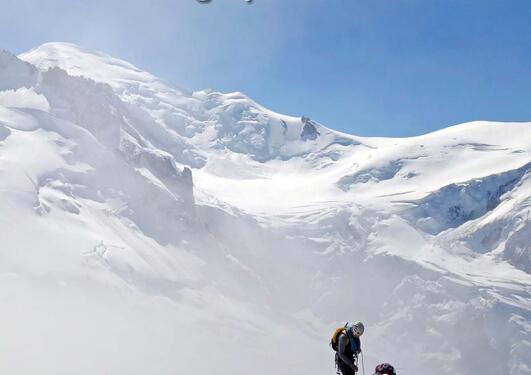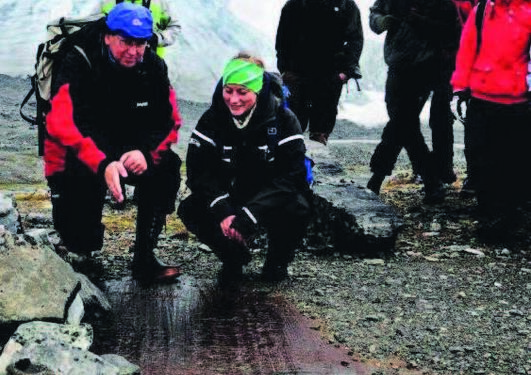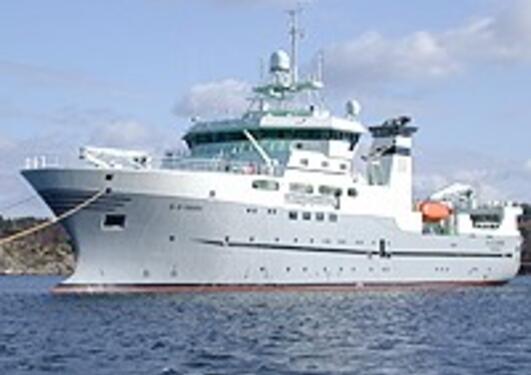GEO Strategic plan 2024 - 2030
DEPARTMENT OF EARTH SCIENCE: STRATEGY 2024 – 2030

Hovedinnhold
VISION AND OVERARCHING GOAL
Vision: Geoscientific knowledge for a better understanding of planet Earth, and a better society.
Our values: excellence, collaboration, openness, inclusivity, integrity
Overarching goals:
- GEO will be an open, inclusive and collaborating department, which operates in the forefront of research and education, nationally and internationally.
- GEO will engage vigorously in science communication, outreach and an informed public debate.
- GEO will produce knowledge, innovations and geoscientists that contribute to solving societal challenges and sustainable development.
This strategy document will be followed up by biannual action plans, where specific actions to achieve the goals of this strategy plan will be defined and updated.
RESEARCH
Vision for research: GEO’s research will be of high quality, be methodologically, theoretically and scientifically innovative, as well as being visible. GEO will be the leading institution nationally, and at the vanguard internationally, within our strategic areas.
The department will
- Conduct fundamental and applied research focusing on three main areas within the understanding of the fundamental dynamics of the Earth: (1) Marine, climate and polar research, (2) Geohazards and environment, and (3) Energy transition and resources.
- Support initiatives for centers, major research projects and participation in international research programs, and to maintain or strengthen the department’s role in existing centers.
- Facilitate and communicate clear expectations that all permanent academic staff apply for a wide range of research funding calls, and to ensure that project budgets support/underpin a sustainable GEO economy.
- Strengthen collaboration, including cross-disciplinary collaboration, at the department, faculty, UiB, as well as nationally and internationally, through participation in research proposals, projects and scientific meeting places.
- Support staff in their research, ensure a balanced and fair distribution of workload, ensuring equity in terms of access to (continuous) research time.
- Attract leading scientists to the department, weighting both teaching needs and the department's strategic research profile, when hiring in permanent academic positions.
EDUCATION
Vision for education: GEO will be nationally leading within earth science education, with an innovative, collaborative and student-centered approach to educational development. Our educational programs will be attractive and societally relevant for students and employers, and we will have a professional administration of our studies.
The department will
- Operate and develop excellent, research-based education within the earth sciences at BSc, MSc and PhD level, leveraging the leading position and educational expertise within our Centre of Excellence in Education, iEarth. Lead and participate in the development and operation of interdisciplinary courses and programs, that respond to societal needs for knowledge and expertise.
- Support an active culture of Scholarship of Teaching and Learning (SOTL), including engaging in educational and didactic research, sharing and disseminating educational research and practices, and participation at national and international SOTL arenas.
- Put the students at the center of our education, involving students as change agents, co-creators and sparring partners in curriculum development.
- Encourage and support employees to apply for external and internal funds for quality development in teaching, apply for Excellent Teaching Practitioner (ETP) status, nominate candidates for "teaching awards" (such as the Owl Prize and the Olav Thon Foundation's award)
- Attract good candidates at all levels by marketing the studies on websites, social media and by conducting active recruitment as well as inform about career opportunities after completing studies/education.
- Continue to offer a strong and broad field- and cruise-based educational portfolio. Local, cost-effective and sustainable field locations are to be used where possible.
- Implement practical knowledge/skills such as collaboration, HSE, field/cruise, GIS, programming, statistics and quantitative calculations in existing and new subjects.
- Regularly review our educational portfolio to build excellence, scale operations to resources, and increase societal and job market relevance.
- Offer an outstanding researcher education of our PhD candidates within the earth sciences.
- Foster earth science education at all levels, supporting schools and training geoscience teachers. Offer life-long learning through continuing education (EVU) to contribute to competence development in society within earth- and related sciences.
RESEARCH INFRASTRUCTURE
Vision for research infrastructure: GEO will have strong and internationally competitive research infrastructure, focusing on developing globally outstanding facilities for propelling research excellence. GEO will lead and participate in the coordination of national and international research infrastructures.
The department will
- Facilitate the operation of infrastructure and secure highly competent technical and scientific staff, who are critical for operation, maintenance and development. Prioritize infrastructure central for maintaining and strengthening research excellence, high levels of activity, and that strategically underpins our research and education.
- Work to finance and procure strategically important new research infrastructure that supports the research activities at the department, and to take an active national role in collaboration with other institutions/research environments in building national research infrastructure within the geosciences.
- Work to maintain and increase access to ship-time, and to be active users of, research vessels that the department is a user of.
- Have adequate IT support for high-performance computing and operation of research infrastructure.
- Have secure storage and handling of all data types generated at the department. Develop routines to ensure that these are made available in-line with UiB's policy for open science and guided by the FAIR principles.
- Ensure sufficient and cost-efficient areas for infrastructure and storage of scientific equipment and sample material.
DISSEMINATION AND OUTREACH
Vision for dissemination and outreach: GEO will be an open, outward-focused and inviting department towards society, schools, decision makers and employers. GEO will contribute actively to research communication, outreach and an informed public debate.
The department will
- Have updated, attractive and easily accessible webpages with relevant information about the research and education at the department, and which facilitates external collaboration and strong student recruitment.
- Have a strong interface with industry, employers and the wider society through participation at relevant arenas, in the news, through popular science channels and in the public debate.
- The department shall increase its interface with school pupils and teachers by offering continuing education for teachers in geoscience, and by offering a package for visiting school classes to the department.
- Increase dissemination of popular science, for example in the form presentations, podcasts, traditional media and social media.
WORKING ENVIRONMENT
Vision for working environment: GEO will be a social, open and inclusive department for students and staff alike, where collaboration, equity, diversity, creativity, tolerance, mutual respect and integrity are central values. GEO will have a focus on health, safety, environment and quality in all our activities.
The department will
- Maintain a continuous and high focus on health, safety and environment, and maintain high ethical standards in all activities.
- Keep a strong focus on working with equity, diversity and inclusion (EDI), through focusing on actions described in UiB’s action plans for EDI work at all institutional levels.
- Facilitate for good social and scientific meeting places and communication channels at the department, for example through information meetings, science seminars, social events, and the departmental newsletter.
- Have a particular focus on supporting early career researchers (PhD candidates, postdocs and researchers) through our onboarding routines, quality academic supervision, career planning and competence building.
- Have a strong administration that supports the core activities at the department, and good cooperation with administration at faculty and central levels of UiB.


